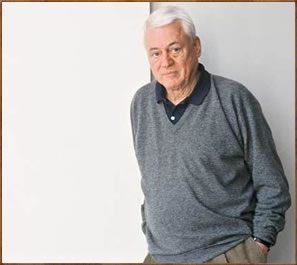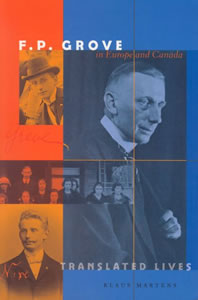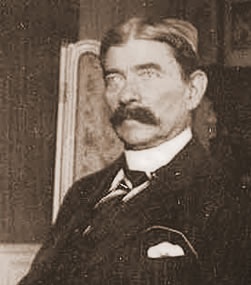De Nederlandse journalist, toneelschrijver, filmacteur en televisiepresentator Ischa Meijer werd geboren in Amsterdam op 14 februari 1943. Zie ook mijn blog van 14 februari 2008. en ook mijn blog van 14 februari 2009.
Uit: De interviewer en de schrijvers (Annie M.G. Schmidt)
“Maar je was dus voor de oorlog ook al iemand die zich behoorlijk schaamde. Je had aanleg.
‘Ja, ik had absoluut aanleg voor schaamte.’
Vind je jezelf lelijk of zo?
‘Ik vond mezelf lelijk, afstotelijk en niks: niks kunnen, niks mogen.’
Wanneer is het overgegaan?
‘Na de oorlog kwam ik bij Het Parool. Na de oorlog, na een heel leven van bibliothecaresse zijn, en een mossig stuk hout zijn, toen begon dat: het mossige ging weg. Er begon iets uit te botten.’
Ja, maar even nog over dat mossige, zal ik maar zeggen, het dooiige, het depressieve…
‘Nou, depressief was ik niet, hoor. Ik was altijd een heel blijmoedig vrolijk mens. Maar ik leefde niet echt.’
Maar had je ook helemaal geen verhoudingen?
‘Nauwelijks, en als ik ze had, dan ging het altijd weer uit. Waarschijnlijk door mezelf, omdat ik mezelf zo onbenullig vond.’
En wat voor een mannen had je?
‘Engerds.’
Waarom nam je ze dan?
‘Omdat ik niets anders krijgen kon.’
Wat voor man had je dan willen hebben toen? Wat was je ideaal?
‘Nou, op de middelbare school – ik was op een hbs in Goes – was ik altijd verliefd op mooie, knappe jongens, donkere, lange, slanke jongens. Dat las ik ook in Joop ter Heul. Daar moest je mee trouwen, dat was het ideaal. En wat er op me afkwam, dat waren miezerds waar ik eigenlijk niks in zag. Ik bedoel fysiek.’
Daar deed je het dan toch mee?
‘Nou, uiteindelijk dan wel even, maar dat duurde nooit lang.’

Ischa Meijer (14 februari 1943 – 14 februari 1995)
De Duitse schrijver en regisseur Alexander Kluge werd op 14 februari 1932 geboren in Halberstadt. Nadat hij zijn studie tot jurist had voltooid, ging hij aan de slag als assistent van de filmregisseur Fritz Lang. Al snel kreeg Kluge naamsbekendheid en regisseerde hij meer dan twintig films. Ook heeft de Duitser een aantal televisieprogramma’s geproduceerd. Daarnaast is Alexander Kluge schrijver. Voor zijn literaire werk ontving hij in 2003 de Büchner-Preis. Kluge houdt zich voornamelijk bezig met thema’s uit de Duitse geschiedenis van de twintigste eeuw. In zijn boek ‘Die Lücke, die der Teufel Lässt’ beschrijft hij in 500 verhalen en op bijna duizend baldzijden, tal van wereldgebeurtenissen zoals de Holocaust, Tsjernobyl, 11 September, de oorlog in Irak, enzovoort.
Uit: Die Lücke, die der Teufel läßt
„Alle sagten: die passen gut zueinander. Sie schritten, großgewachsen und schlank, in den Speisesaal und empfingen Blicke. Diesen Platzvorteil vor allen anderen, den Rang zu zweit, wollten sie nicht aufgeben, und so überbrückten sie die Jahre der Wechselhaftigkeiten. Hätte sie jemand in ihrer gleisnerischen Trance, von außen gelenkt, wie sie waren, Angeber ihres Glücks, gefragt, OB SIE EINANDER LIEBTEN, WAS SIE INNERLICH MITEINANDER, AUSSER GEMEINSAM GUT AUSSEHEN, VERBÄNDE, so kann es sein, daß sie abgestürzt wären in Zweifel. Sie waren kluge Kinder. Nicht einmal dachten sie nach. Das war die Gefahr in der Anfangszeit: daß sie das Wesen ihrer Verbindung vor dem Gericht des Verstandes hätten darlegen müssen. Was hätten sie vorgebracht? Es zog sie nicht stark zueinander.
In späteren Jahren, auch durch Rat verständiger Freunde, die das Paar wie ein ausgemacht schönes Möbel gerne in ihrer Umgebung wußten, lieferten sie alles nach, was nach dem Gebot der Aufrichtigkeit, Innerlichkeit, Spontaneität und Absolutheit zu einer Leidenschaft gehört. Sie antworteten gemeinsam auf äußere Gefahren, überschritten gemeinsam die Grenze in ein anderes Gesellschaftssystem (in dem sie von außen kaum noch bewundert wurden); sie sahen auf eine Technik des Umgangs zurück, die Nähe und Abstand so regulierte, wie nur sie es vermochten. Andere, die diese intime, unaussprechliche Technik des Umgangs nicht beherrschten, fielen ihnen (im Fall eines kurzen Abenteuers) rasch auf die Nerven. Das verschaffte ihrer Beziehung Dauer. Was ist der Reiz des Abenteuers gegen das eigene Haus? So stellten sie, recht spät, schon herausgeraten aus der Blüte der Jahre, unerkannt, wenn sie einen Speisesaal betraten, fest, daß sie sich ineinander verliebt hatten. Auf oberflächliche Weise. Entweder war etwas von der Außenhaut nach innen geraten, oder das Innere besteht aus solcher Haut.“

Alexander Kluge (Halberstadt, 14 februari 1932)
De Nederlandse dichter en predikant Piet Paaltjens werd geboren in Leeuwarden op 14 februari 1835. Zie ook mijn blog van 14 februari 2007 en ook mijn blog van 14 februari 2008 en ook mijn blog van 14 februari 2009.
Aan Betsy
Het heugt mij als de dag van gistren. Op het mos
In hartverovrend achtelooze houding lag
Uw rijzige figuur, wijl de anderen het bosch
Langzaam doordwaalden. ’t was een vreeslijk heete dag.
Gij hield mijn veldflesch aan uw rozenlipjes, droog
Van ’t lachen. Diep-gemoedlijk, als wen de avondklok
Door ’t dal luidt, klonk het in uw keel. En zacht bewoog
Uw zoete strot zich op en neer bij elken slok.
Intusschen leunde ik schilderachtig op den tronk
Eens duizendjaargen eiks en vroeg mij heimlijk, wat
Voor smaak wel ’t lot had, dat het aan een veldflesch schonk,
Wat droomend slechts mijn dichtermond genoten had.
O, ware ’t noodlot niet alleen behept met koud
Verstand maar ook met warm gevoel, – uw poezle hand
Had plots de flesch, zoordra ze leeg was, door het woud
Gekeild, en op mijn lippen had uw mond gebrand.
Nu echter dronkt ge alleen de flesch leeg, onbewust,
Dat de inhoud nog al koppig was, – ’t was witte port, –
En sloot uw loddrige oogjes dicht en sliept gerust. –
Nooit heb ik zóóveel tranen op één dag gestort.
Immortelle I
De maan glijdt langs de ruiten
En blikt mij vragend aan.
“Wat moet dat, bleeke zanger, –
In uw ooghoek glinstert een traan?”
Zoo gij de maan zelf niet waart
‘k Zou zeggen: loop naar de maan. –
Wat mij het oog doet glinsteren,
Dat gaat er geen schepsel aan.

Piet Paaltjens (14 februari 1835 – 19 januari 1894)
Standbeeld door Auke Hettema in Leiden
De Amerikaanse schrijver Robert Shea werd geboren op 14 februari 1933 in New York. Zie ook mijn blog van 14 februari 2008 en ook mijn blog van 14 februari 2009.
Uit: The Illuminatus! Trilogy (samen met Robert A. Wilson)
„It was the year when they finally immanentized the Eschaton. On April 1, the world’s great powers came closer to nuclear war than ever before, all because of an obscure island named Fernando Poo. By the time international affairs returned to their normal cold-war level, some wits were calling it the most tasteless April Fool’s joke in history. I happen to know all the details about what happened, but I have no idea how to recount them in a manner that will make sense to most readers. For instance, I am not even sure who I am, and my embarrassment on that matter mates me wonder if you will believe anything I reveal. Worse yet, I am at the moment very conscious of a squirrel-in Central Park, just off Sixty-eighth Street, in New York City-that is leaping from one tree to another, and I
think that happens on the night of April 23 (or is it the morning of April 24?), but fitting the squirrel together with Fernando Poo is, for the present, beyond my powers. I beg your tolerance. There is nothing I can do to make things any easier for any of us, and you will have to accept being addressed by a disembodied voice just as I accept the compulsion to speak out even though I am painfully aware that I am talking to an invisible, perhaps nonexistent audience. Wise men have regarded the earth as a tragedy, a farce, even an illusionist’s trick; but all, if they are truly wise and not merely intellectual rapists, recognize that it is certainly some kind of stage in which we all play roles, most of us being very poorly coached and totally unrehearsed before the curtain rises. Is it too much if I ask, tentatively, that we agree to look upon it as a circus, a touring carnival wandering about the sun for a record season of four billion years and producing new monsters and miracles, hoaxes and bloody mishaps, wonders and blunders, but never quite entertaining the customers well enough to prevent them from leaving, one by one, and returning to their homes for a long and bored winter’s sleep under the dust?“

Robert Shea (14 februari 1933 – 10 maart 1994)
De Canadees-Duitse schrijver en vertaler Frederick Philip Grove werd geboren als Felix Paul Greve op 14 februari 1879 in Radomno, Westpruisen. Zie ook mijn blog van 14 februari 2007 en ook mijn blog van 14 februari 2009.
Uit: Fruits of the Earth
„Abe made room under the spout by driving ahead.
“Here, Charlie,” he said, for the boy had climbed to the ground. “I want you to take a load to town. Can you do it?”
“Sure, daddy.”
“All right. There it is. Climb up.” And he helped him. “Had your dinner? To elevator one; the first from the crossing. Listen here. While you have the load, you walk the horses. When you drive up the incline, hold your lines tight. On the platform, let the man do the work. On the way home, you can trot half the way.”
The boy nodded and clicked his tongue.
Victor Lafontaine had been watching father and son. As Abe turned back to his load, the Frenchman caught his eye and smiled. “Nice kid,” he said.
Abe looked at his watch. “Fill Horanski’s tank. Then dinner.” And he, too, drove on, separated from Charlie only by a narrow strip; for half a mile the trails hardly diverged. Abe met the hayrack bringing the dinner for the crew. Mrs. Horanski stood, precariously balanced, among baskets of food and boilers of coffee. As she passed him, she nodded with a smile at Charlie who laughed proudly back at her.
Then, just as father and son reached the point where their trails divided sharply, the whistle of the engine blew, giving the signal to stop work. The shrill sound made Charlie jump; and smilingly he looked back at his father, waving his h
and; then he disappeared from sight.
Two hours went by. Abe had had his lunch at home and was back in the field filling his tank.
Wheat, wheat, wheat ran from the spout.
Then, just as in the morning, Victor and his ladsstared south.
Abe looked up at the old man’s face which he saw in three-quarter profile. He was conscious only of the sunlight playing in the snow-white bristles of the stubble of his beard. Incomprehensibly, a wave of fear invaded him, aroused by the puzzled expression on the man’s face. Again, as in the morning, Abe dropped to the ground and circled the engine“.

Frederick Philip Grove (14 februari 1879 – 19 augustus 1948)
Omslag biografie door Klaus Martens
De Iers-Engelse schrijver, publicist, uitgever en redacteur Frank Harris werd geboren op 14 februari 1856 in Galway, Ierland. Zie ook mijn blog van 14 februari 2009.
Uit: Oscar Wilde, His Life and Confessions
„The Wildes had three children, two sons and a daughter. The first son was born in 1852, a year after the marriage, and was christened after his father William Charles Kingsbury Wills. The second son was born two years later, in 1854 and the names given to him seem to reveal the Nationalist sympathies and pride of his mother. He was christened Oscar Fingal O’Flahertie Wills Wilde; but he
appears to have suffered from the pompous string only in extreme youth. At school he concealed the “Fingal,” as a young man he found it advisable to omit the “O’Flahertie.”
In childhood and early boyhood Oscar was not considered as quick or engaging or handsome as his brother, Willie. Both boys had the benefit of the best schooling of the time. They were sent as boarders to the Portora School at Enniskillen, one of the four Royal schools of Ireland. Oscar went to Portora in 1864 at the age of nine, a couple of years after his brother. He remained at the school for seven years and left it on winning an Exhibition for Trinity College, Dublin, when he was just seventeen.
The facts hitherto collected and published about Oscar as a schoolboy are sadly meagre and insignificant. Fortunately for my readers I have received from Sir Edward Sullivan, who was a contemporary of Oscar both at school and college, an exceedingly vivid and interesting pen-picture of the lad, one of those astounding masterpieces of portraiture only to be produced by the plastic sympathies of boyhood and the intimate intercourse of years lived in common.
It is love alone which in later life can achieve such a miracle of representment. I am very glad to be allowed to publish this realistic miniature, in the very words of the author.
“I first met Oscar Wilde in the early part of 1868 at Portora Royal School. He was thirteen or fourteen years of age. His long straight fair hair was a striking feature of his appearance. He was then, as he remained for some years after, extremely boyish in nature, very mobile, almost restless when out of the schoolroom. Yet he took no part in the school games at any time. Now and then he would be seen in one of the school boats on Loch Erne: yet he was a poor hand at an oar.“

Frank Harris (14 februari 1856 – 27 augustus 1931)
Zie voor nog meer schrijvers van de 14e februari ook mijn vorige blog van vandaag.



















